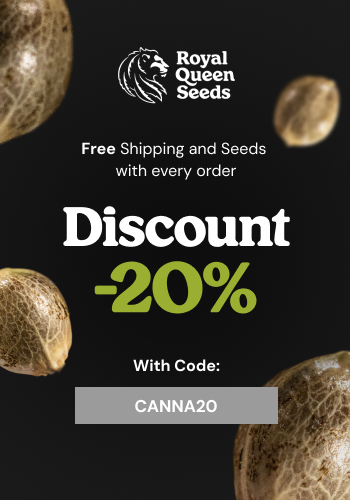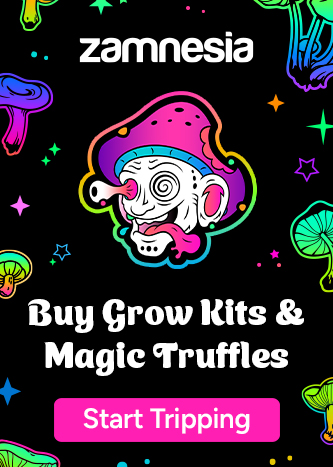How to make your own fertilizer for cannabis plants
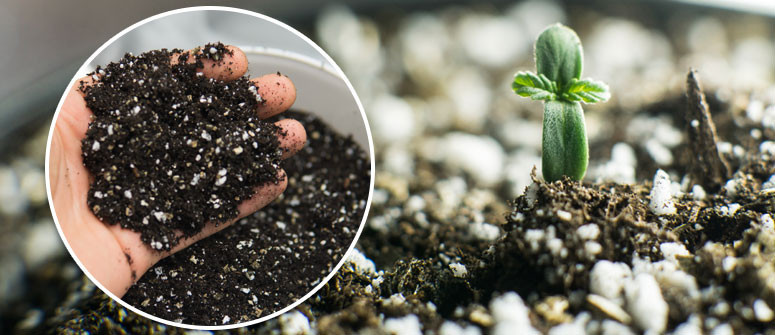
When you’re growing your own weed on a budget, or want to keep things natural, you can easily make your own natural fertilizers at home by composting or throwing some simple food scraps into your plants' soil.
Growing weed with bottled nutrients is pretty straightforward. But if you really want to take matters into your own hands and have full control over your plants, you’ll want to start using your own homemade fertilizer.
Making your own fertilizer is pretty easy and when you are growing on a budget, or would like to stay off the grid, it is your best bet.
WHY MAKE YOUR OWN FERTILIZER?
Many growers want to stray away from using store bought nutrients, instead opting to use their own, homemade fertilizers. And there are many good reasons to do so.
First of all, making your own fertilizer (while more labor-intensive) tends to be much cheaper, especially over time, than buying ready-made nutrient solutions.
Using your own fertilizer also gives you much more control over what you actually feed your plants, and leaves room for much more experimentation. if you’re looking to grow organic, or even veganic cannabis, making your own fertilizer is usually the best way to ensure you’re sticking to those guidelines.
Another major benefit of using your own homemade fertilizer is that it will help boost the overall quality of your soil over time. In fact, when growing with your own organic fertilizer, you’ll be able to reuse your soil over multiple grows. Synthetic nutrients, on the other hand, tend to diminish soil quality.
UNDERSTANDING CANNABIS NUTRIENTS: N, P, AND K
Like any other plant, cannabis needs some key nutrients to survive: nitrogen (N), phosphorus (P), and potassium (K). All of these nutrients are equally important and help the plant grow and bloom.
Except for legumes, plants can’t absorb nitrogen from the air and instead absorb it from the ground. Nitrogen is super important for photosynthesis, helping the plant produce energy to grow plenty of healthy foliage.
You’ll notice that most fertilizers designed to be used during the vegetative phase include higher concentrations of nitrogen.
Phosphorus, on the other hand, helps plants develop strong, healthy root systems. You’ll find that blooming plants tend to benefit from higher concentrations of phosphorus. It is also important for young plants, which are still developing their root systems.
Potassium, like nitrogen, is important for photosynthesis as well as the production of plant proteins. A healthy diet of potassium is also great for strengthening your plant's immune system.
If you’ve worked with store bought nutrients before, you will have noticed that different products have different NPK solutions. Seedling/clone nutrients tend to be very mild, seeing as these young plants are very fragile.
Vegetative nutrients, on the other hand, tend to contain higher concentrations of nitrogen, while bloom nutrients tend to be rich in phosphorus to promote the growth of big, healthy buds.
MAKING THE PERFECT FERTILIZER FOR CANNABIS PLANTS IS EASY
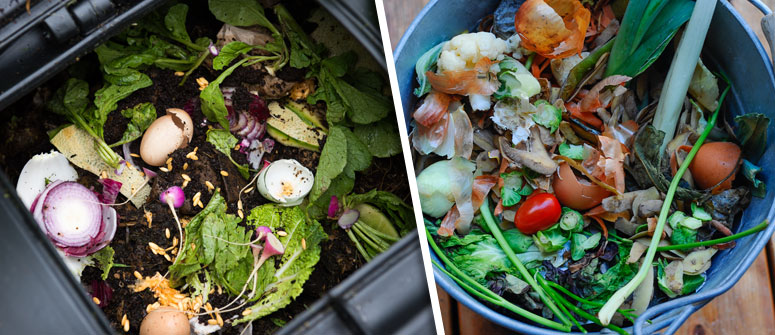
Sure, making your own fertilizer can sound tricky. But it’s not. It’s actually very easy.
You’ll find nitrogen, potassium, and phosphorus in all kinds of food scraps and natural ingredients you’ve probably got lying around your kitchen.
To make your own nutrient-rich soil at home, you’ll want to start by composting. Now, composting is one of those things many growers are put off by, thinking it’ll be complicated, smelly, messy, and take a lot of time. But composting can actually be really easy.
In fact, you could start composting today. All you really need is dry soil or dry cuttings from a garden or yard (if you have one) and a compost bin (which go for around $80 US on Amazon, but which you can easily make yourself as well).
Once you’ve got your bin, you’ll want to add in your dry materials first, followed by some wet materials (like table scraps, coffee grounds, herbal teas, etc).
The only real science to great composting is this; keep your compost mix neither dry nor overly moist. Check in on your compost regularly and water it (if too dry) or add more dry material to it (if too wet).
Over time, the microbes in your compost will break down the ingredients you add to it to make a rich, well-aerated soil for your plants. If you like, you can add earthworms to your compost for even better results, but that might not feasible if you have limited space or live in an apartment.
Your compost gets its nutrients from the ingredients you add to it and even if you don’t like the idea of composting, don’t fret, you can also add them straight to your plant’s soil (just note that they’ll take longer to break down).
You just need to know which natural ingredients that you probably already have around the house, are actually natural fertilizers you can use to grow great weed.
8 THINGS YOU CAN ADD TO MAKE YOUR OWN FERTILIZER:
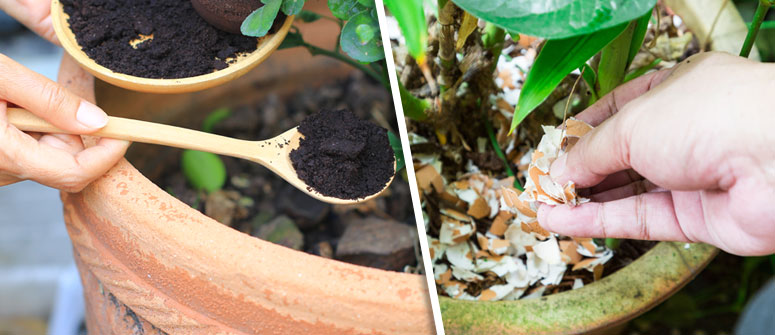
1. COFFEE GROUNDS
Coffee grounds are perfect for composting. They break down easily and contain all 3 key ingredients you need to grow great cannabis plants. They are particularly rich in nitrogen, but also contain a good balance of potassium and phosphorus.
2. BANANA SKINS
Banana skins are rich in phosphorus and potassium. They also contain calcium and plenty of other minerals that can further help enrich your soil and benefit your plants.
3. AQUAFABA
Aquafaba (or “bean water”) is the liquid you find in tinned chickpeas, lentils, beans and many other products. It is a great source of potassium (just like beans/chickpeas themselves). Either add it directly to your pots, or better yet, use it to moisten your compost when it dries out.
4. COOKING WATER
You know that bland water you boil your spinach, kale, or other veggies in? Next time you’re washing up, feed it to your plants rather than pouring it down the sink. When you boil vegetables, many of their nutrients get absorbed into the water and can be easily absorbed by your plants.
The nutrients in the water will vary depending on what vegetables you’re cooking, but you’ll find cooking water contains potassium, calcium, iron, and more. Just remember to let the water cool before giving it to your plants.
5. URINE
It might sound a bit icky, but human urine is one of the best fertilizers for your cannabis plant as it’s especially rich in nitrogen.
When feeding your plants urine, just be sure to dilute it with water and avoid getting it directly on the foliage of the plant as the high concentrations of nitrogen can be damaging to leaves, stems, etc.
6. CITRUS PEELS
Like most fruit peels, citrus peels make a great natural fertilizer for your plants. They are rich in nitrogen, potassium, and phosphorus, meaning they make for an all-around fertilizer to throw in your compost or your plants’ soil.
Citrus peels also help repel pests, which can protect your cannabis plants from mites and other harmful predators.
7. EGG SHELLS
Egg shells are rich in calcium. And while it's not the most essential plant nutrient, calcium helps your plants develop strong cell wells.
Just keep in mind that eggshells can take some time to break down, so they are best used in compost rather than just thrown in soil.
8. HERBS
Any combination of herbaceous plants makes a great fertilizer. Nettles for instance are a very annoying plant that will have you itchy all day if you let them touch your bare skin. But just like that it makes for a great tea, it can also be used to make fertilizer as it is known as a pretty good nutrient accumulator.
All you have to do is take some cuttings of nettle, comfrey or yarrow for instance, and put them in a fairly air-tight container filled with water, and just leave it there for a couple of weeks or months.


